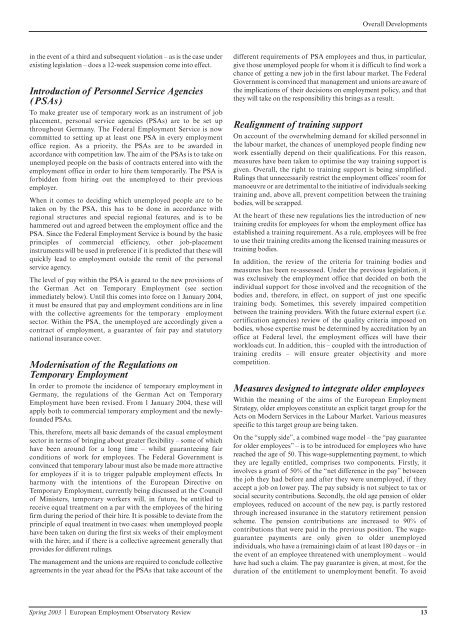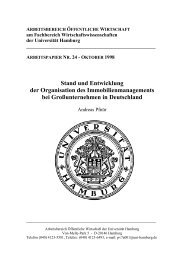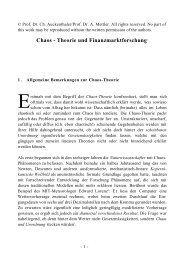FRANCE The
FRANCE The
FRANCE The
You also want an ePaper? Increase the reach of your titles
YUMPU automatically turns print PDFs into web optimized ePapers that Google loves.
in the event of a third and subsequent violation – as is the case under<br />
existing legislation – does a 12-week suspension come into effect.<br />
Introduction of Personnel Service Agencies<br />
(PSAs)<br />
To make greater use of temporary work as an instrument of job<br />
placement, personal service agencies (PSAs) are to be set up<br />
throughout Germany. <strong>The</strong> Federal Employment Service is now<br />
committed to setting up at least one PSA in every employment<br />
office region. As a priority, the PSAs are to be awarded in<br />
accordance with competition law. <strong>The</strong> aim of the PSAs is to take on<br />
unemployed people on the basis of contracts entered into with the<br />
employment office in order to hire them temporarily. <strong>The</strong> PSA is<br />
forbidden from hiring out the unemployed to their previous<br />
employer.<br />
When it comes to deciding which unemployed people are to be<br />
taken on by the PSA, this has to be done in accordance with<br />
regional structures and special regional features, and is to be<br />
hammered out and agreed between the employment office and the<br />
PSA. Since the Federal Employment Service is bound by the basic<br />
principles of commercial efficiency, other job-placement<br />
instruments will be used in preference if it is predicted that these will<br />
quickly lead to employment outside the remit of the personal<br />
service agency.<br />
<strong>The</strong> level of pay within the PSA is geared to the new provisions of<br />
the German Act on Temporary Employment (see section<br />
immediately below). Until this comes into force on 1 January 2004,<br />
it must be ensured that pay and employment conditions are in line<br />
with the collective agreements for the temporary employment<br />
sector. Within the PSA, the unemployed are accordingly given a<br />
contract of employment, a guarantee of fair pay and statutory<br />
national insurance cover.<br />
Modernisation of the Regulations on<br />
Temporary Employment<br />
In order to promote the incidence of temporary employment in<br />
Germany, the regulations of the German Act on Temporary<br />
Employment have been revised. From 1 January 2004, these will<br />
apply both to commercial temporary employment and the newlyfounded<br />
PSAs.<br />
This, therefore, meets all basic demands of the casual employment<br />
sector in terms of bringing about greater flexibility – some of which<br />
have been around for a long time – whilst guaranteeing fair<br />
conditions of work for employees. <strong>The</strong> Federal Government is<br />
convinced that temporary labour must also be made more attractive<br />
for employees if it is to trigger palpable employment effects. In<br />
harmony with the intentions of the European Directive on<br />
Temporary Employment, currently being discussed at the Council<br />
of Ministers, temporary workers will, in future, be entitled to<br />
receive equal treatment on a par with the employees of the hiring<br />
firm during the period of their hire. It is possible to deviate from the<br />
principle of equal treatment in two cases: when unemployed people<br />
have been taken on during the first six weeks of their employment<br />
with the hirer, and if there is a collective agreement generally that<br />
provides for different rulings.<br />
<strong>The</strong> management and the unions are required to conclude collective<br />
agreements in the year ahead for the PSAs that take account of the<br />
Overall Developments<br />
different requirements of PSA employees and thus, in particular,<br />
give those unemployed people for whom it is difficult to find work a<br />
chance of getting a new job in the first labour market. <strong>The</strong> Federal<br />
Government is convinced that management and unions are aware of<br />
the implications of their decisions on employment policy, and that<br />
they will take on the responsibility this brings as a result.<br />
Realignment of training support<br />
On account of the overwhelming demand for skilled personnel in<br />
the labour market, the chances of unemployed people finding new<br />
work essentially depend on their qualifications. For this reason,<br />
measures have been taken to optimise the way training support is<br />
given. Overall, the right to training support is being simplified.<br />
Rulings that unnecessarily restrict the employment offices’ room for<br />
manoeuvre or are detrimental to the initiative of individuals seeking<br />
training and, above all, prevent competition between the training<br />
bodies, will be scrapped.<br />
At the heart of these new regulations lies the introduction of new<br />
training credits for employees for whom the employment office has<br />
established a training requirement. As a rule, employees will be free<br />
to use their training credits among the licensed training measures or<br />
training bodies.<br />
In addition, the review of the criteria for training bodies and<br />
measures has been re-assessed. Under the previous legislation, it<br />
was exclusively the employment office that decided on both the<br />
individual support for those involved and the recognition of the<br />
bodies and, therefore, in effect, on support of just one specific<br />
training body. Sometimes, this severely impaired competition<br />
between the training providers. With the future external expert (i.e.<br />
certification agencies) review of the quality criteria imposed on<br />
bodies, whose expertise must be determined by accreditation by an<br />
office at Federal level, the employment offices will have their<br />
workloads cut. In addition, this – coupled with the introduction of<br />
training credits – will ensure greater objectivity and more<br />
competition.<br />
Measures designed to integrate older employees<br />
Within the meaning of the aims of the European Employment<br />
Strategy, older employees constitute an explicit target group for the<br />
Acts on Modern Services in the Labour Market. Various measures<br />
specific to this target group are being taken.<br />
On the “supply side”, a combined wage model – the “pay guarantee<br />
for older employees” – is to be introduced for employees who have<br />
reached the age of 50. This wage-supplementing payment, to which<br />
they are legally entitled, comprises two components. Firstly, it<br />
involves a grant of 50% of the “net difference in the pay” between<br />
the job they had before and after they were unemployed, if they<br />
accept a job on lower pay. <strong>The</strong> pay subsidy is not subject to tax or<br />
social security contributions. Secondly, the old age pension of older<br />
employees, reduced on account of the new pay, is partly restored<br />
through increased insurance in the statutory retirement pension<br />
scheme. <strong>The</strong> pension contributions are increased to 90% of<br />
contributions that were paid in the previous position. <strong>The</strong> wageguarantee<br />
payments are only given to older unemployed<br />
individuals, who have a (remaining) claim of at least 180 days or – in<br />
the event of an employee threatened with unemployment – would<br />
have had such a claim. <strong>The</strong> pay guarantee is given, at most, for the<br />
duration of the entitlement to unemployment benefit. To avoid<br />
Spring 2003 | European Employment Observatory Review 13

















